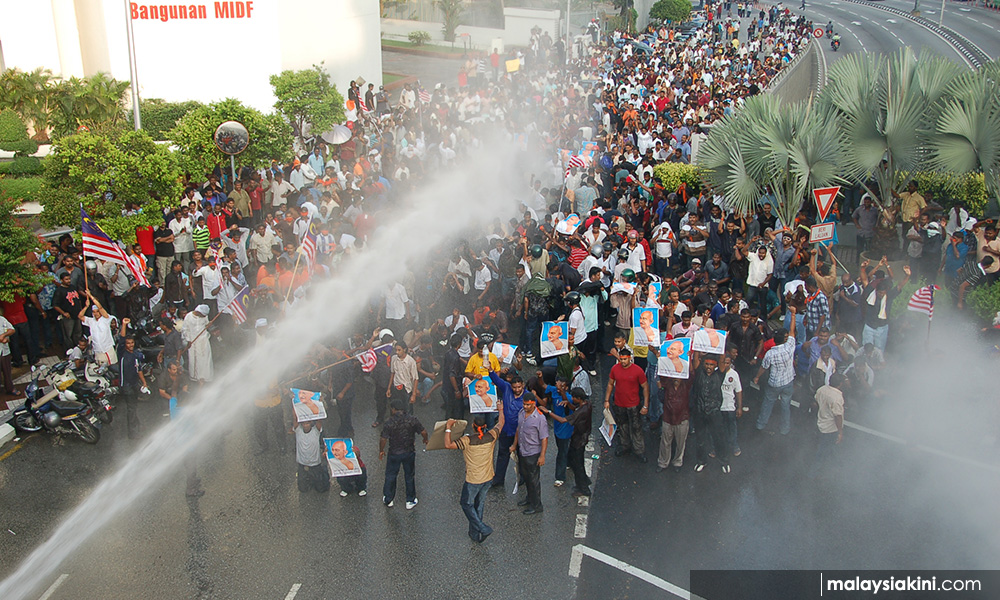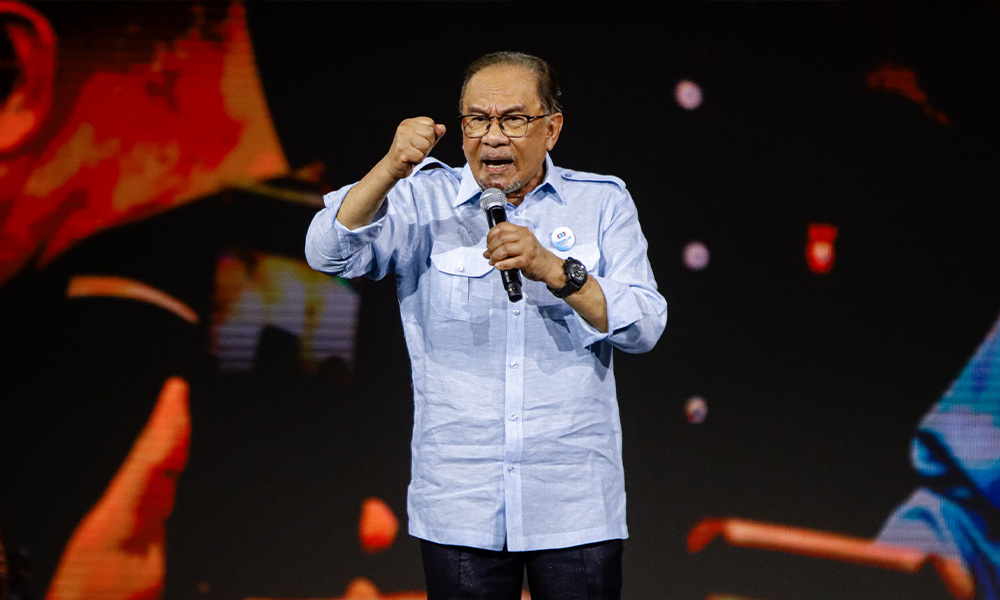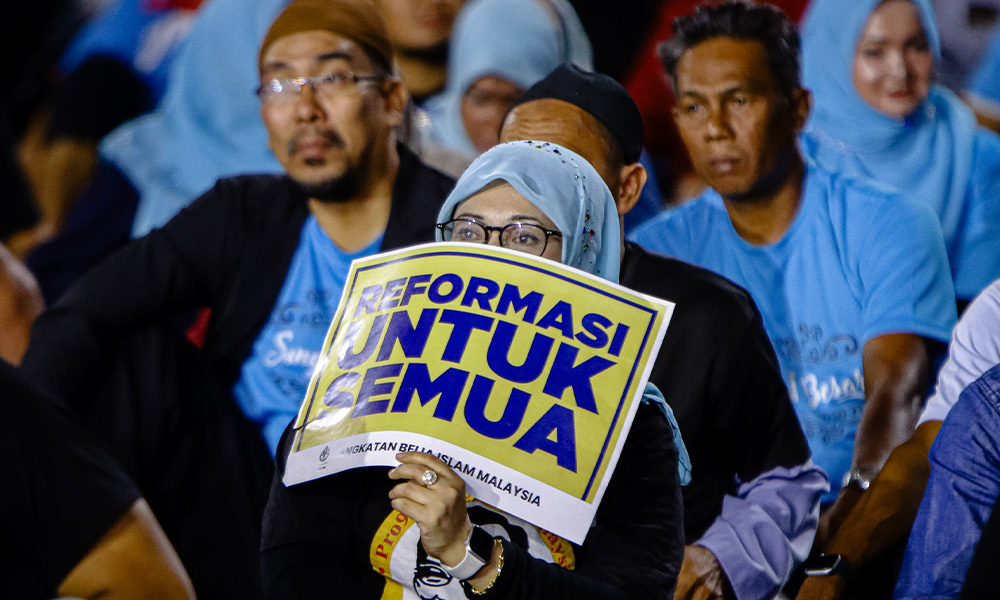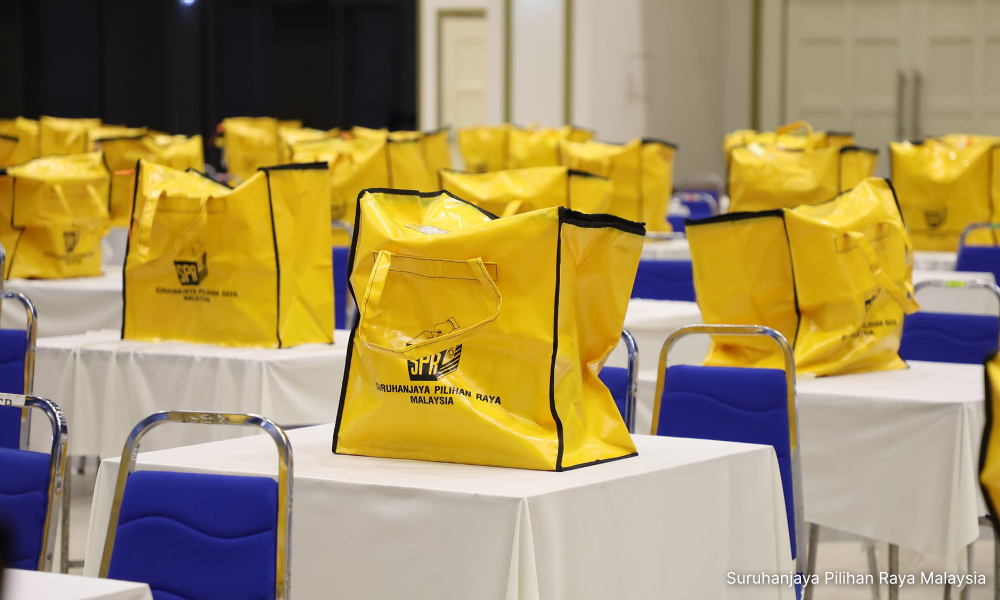In less than three years, Malaysia will conduct its general election. This election serves not only as a significant evaluation of the current unity government but also holds particular importance for the Indian community in Malaysia.
Over the past few decades, this community has often been exploited by both Indian and other national leaders as a means to fulfil their personal and political ambitions.
The awakening prompted by the Hindraf rally in 2007 has led this community to shift from a traditional mindset characterised by blind loyalty and unquestioning obedience to a more proactive stance, particularly evident among Generation Z within the Indian community in Malaysia.
Indian leaders
In any community or society, it is imperative that leaders prioritise the needs of the populace they represent. Their responsibilities compel them to act in the best interests of the people, rather than engaging in actions driven by personal gain or political advantage.
Regrettably, for Indian Malaysians, leaders of the Indian community since the 1970s have often exploited this demographic to further their ambitions.
A notable example includes the eviction of Indians from estates owned by government-linked companies, which resulted in the forced relocation of these individuals to urban areas without adequate job security or housing.
This displacement has led to enduring social challenges that continue to affect the community to this day.
The government of that era attributed the misfortune to the Indian leaders within its ranks; however, I contend that this was a convenient evasion of accountability on the part of the government, which failed to uphold its duty to safeguard all citizens, including the displaced estate workers of Indian descent.
This situation, alongside the Maika Holdings debacle and other related matters, contributed to a gradual erosion of trust among the Indian community towards their leaders, ultimately serving as a catalyst for the emergence of Hindraf in 2007.

The fundamental errors made by the previous leadership have resulted in the current generation of Indian leaders struggling to earn the trust and support of this community.
National leaders
Concurrently, the Reformation era has been marked by the dismissal of then-deputy prime minister Anwar Ibrahim, whose passionate advocacy for reform, equality, accountability, and unity has instilled a sense of confidence and hope within this community.
There is a prevailing sense of optimism among the constituents that their issues will ultimately receive recognition and resolution from the leadership of this movement. However, Anwar’s administration when he became the prime minister seems to be dampening the aspirations of many individuals.
In April of this year, Anwar refuted claims that he had neglected the Indian community during his time in office. He highlighted various initiatives designed to assist and uplift this group, contending that it was unjust to imply that he had not adequately addressed the difficulties encountered by the community.
Furthermore, he remarked that Indians should not harbour feelings of anger or jealousy regarding the advantages afforded to Malays.

Last year, an incident involving an 18-year-old Indian schoolgirl arose when she questioned the quota system for admission into public universities and the matriculation programme. He cautioned her against challenging the established social contract.
In addition, for the first time since the nation achieved independence, the cabinet lacks a Tamil-speaking minister, which is particularly alarming given that the Indian Tamil community represents the largest demographic within the Indian populace.
This absence raises concerns regarding who will address vital issues such as the demolition of temples and the status of Tamil schools, both of which have significant implications for this community at the cabinet level.
Throughout his tenure, this community has shown considerable support for him, harbouring high expectations that he would serve as a champion for their interests, especially in light of the failures of their previous leaders.
However, since he assumed the role of prime minister, his rhetoric has become increasingly indistinct, failing to resonate with the diverse needs of all Malaysians, including young people from various ethnic backgrounds.
Consequently, ordinary Indians express disappointment, drawing parallels between his conduct and that of past and present leaders.
On the ground, this community has not only lost faith in their leaders but also in national figures who have claimed to represent all ethnicities in Malaysia.
Their discontent is not directed towards some national leaders like Dr Mahathir Mohamad, Muhyiddin Yassin or Ismail Sabri Yaakob, as these leaders have not positioned themselves as representatives of all communities and have instead adopted clear, racially and religiously defined political stances that this community comprehends and accepts.

Conversely, the promise of hope extended by Anwar to them during the election campaign, followed by a retreat from those commitments, is perceived as a betrayal by this community.
Indian Malaysian electorates
Certain leaders, whether Indian or national, have surprisingly assumed that the Indian populace can be easily influenced through the distribution of gifts, hollow promises, the occasional use of Tamil, Telugu, or Malayalam phrases, performances of Indian songs, or reciting lines from films featuring iconic actors such as MGR or Rajinikanth.
However, Gen Z, who are increasingly shaping the perspectives of older generations, regard such behaviours as mere theatrics. This younger demographic acknowledges and values the sacrifices made by their ancestors for the nation and is unwilling to allow contemporary leaders to underestimate their discernment.
Moreover, it became evident that the cohesion among the Indian population in this nation, fostered by the Hindraf movement, was systematically undermined by national leaders from various political parties. These leaders actively encouraged Hindraf leaders to defect and abandon their cause, often luring them with various incentives.
Undesirably, some leaders succumbed to this manipulation, resulting in a significant loss of credibility within their community.
Additionally, in the aftermath of the Hindraf rally, the government allocated resources to specific sub-ethnic groups within the Indian community and certain caste-based organisations, further exacerbating divisions among them. This approach proved to be quite effective.
Observing the patterns
The general election is imminent once again. Leaders who have previously neglected this community will suddenly express concern over local issues, which will gain significant attention across various media platforms, including social media.
There will be a notable push to increase funding for Tamil schools and temples. As well, the long-standing citizenship predicament faced by Indians will receive national media coverage.
The rising number of Indian students enrolling in public universities will also attract considerable attention. Furthermore, there will be a strong demand for a greater representation of Indians within the civil service.
Gen Z has observed these patterns closely. As they approach the upcoming general election, they are acutely aware of the influence of their votes and the potential impact on their lives.

They have witnessed how the Chinese community in the country effectively mobilises their votes and unites to address issues pertinent to their community, despite differing political beliefs.
GenZ possesses a level of wisdom that surpasses that of previous generations. It is unwise to underestimate this community any longer.
If they can reject their leaders, they are equally prepared to dismiss national leaders who have let them down.
Throughout the history of this nation, this community has often placed their trust in unworthy leaders. Their inherent qualities have, at times, been exploited by unscrupulous leaders who manipulate and discriminate against them.
This community is poised to deliver a significant lesson to these leaders in the forthcoming GE16. - Mkini
R PANEIR SELVAM is the principal consultant of Arunachala Research & Consultancy Sdn Bhd, a think tank specialising in strategic national and geo-political matters.
The views expressed here are those of the author/contributor and do not necessarily represent the views of MMKtT.




No comments:
Post a Comment
Note: Only a member of this blog may post a comment.